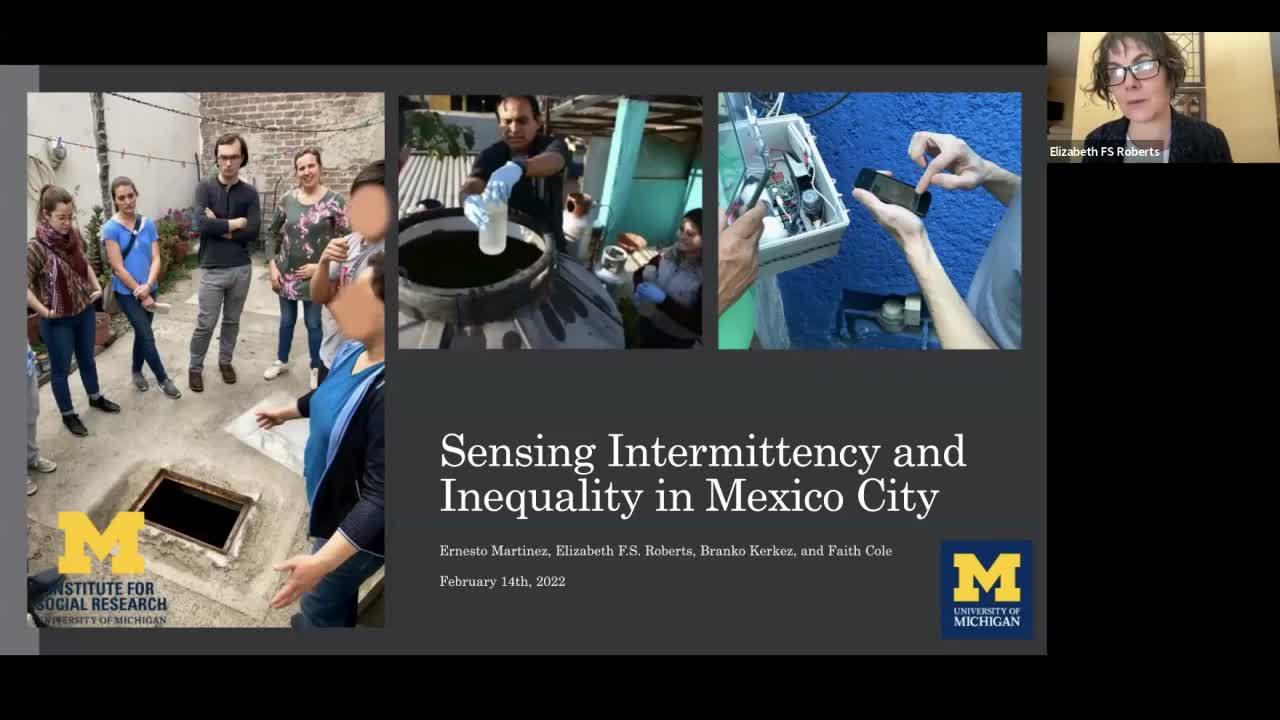
Elizabeth F. S. Roberts
Professor
Department of Anthropology
Professor of Anthropology, College of Literature, Science, and the Arts and Faculty Associate, Research Center for Group Dynamics, Institute for Social Research
“Neighborhood Environments as Socio-Techno-bio Systems: Water Quality, Public Trust, and Health in Mexico City (NESTSMX)” is an NSF-funded multi-year collaborative interdisciplinary project that brings together experts in environmental engineering, anthropology, and environmental health from the University of Michigan and the Instituto Nacional de Salud Pública. The PI is Elizabeth Roberts (anthropology), and the co-PIs are Brisa N. Sánchez (biostatistics), Martha M Téllez-Rojo (public health), Branko Kerkez (environmental engineering), and Krista Rule Wigginton (civil and environmental engineering). Our overarching goal for NESTSMX is to develop methods for understanding neighborhoods as “socio-techno-bio systems” and to understand how these systems relate to people’s trust in (or distrust of) their water. In the process, we will collectively contribute to our respective fields of study while we learn how to merge efforts from different disciplinary backgrounds.
NESTSMX works with families living in Mexico City, that participate in an ongoing longitudinal birth-cohort chemical-exposure study (ELEMENT (Early Life Exposures in Mexico to ENvironmental Toxicants, U-M School of Public Health). Our research involves ethnography and environmental engineering fieldwork which we will combine with biomarker data previously gathered by ELEMENT. Our focus will be on the infrastructures and social structures that move water in and out of neighborhoods, households, and bodies.

Testing Real-Time Domestic Water Sensors in Mexico City

